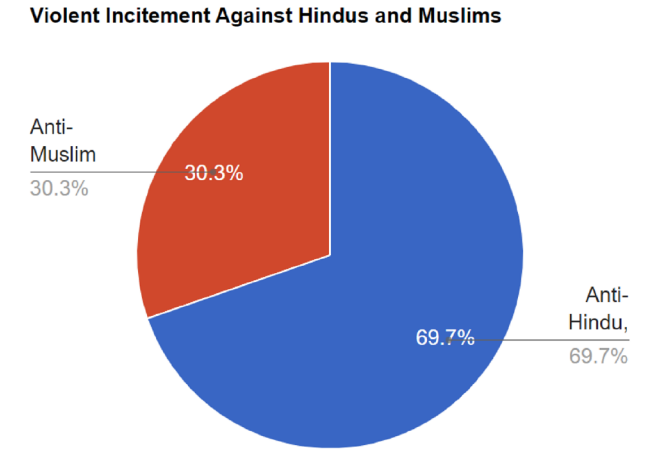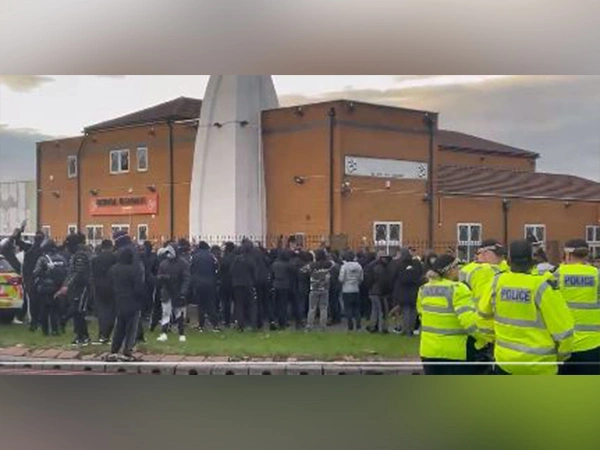The US-based Network Contagion Research Institute in its report on the Leicester incidents says that “malicious online narratives”, “ethnic hatred” and false reports of child kidnapping and attacks on a local mosque led to unprecedented violence.
The report, ‘Cyber Social Swarming Precedes Real World Riots in Leicester: How Social Media Became a Weapon for Violence’ released on Wednesday evening also says that “Majid Freeman, a key influencer who has openly voiced support for Al Qaeda, slain ISIS fighters played a key role amplifying false information that appear to have instigated unrest”.
The NCRI says: “Majid Freeman is a British Muslim former aid worker who has voiced support for convicted murderer and Al Qaeda supporter Aafia Siddiqui, posted messages in support of ISIS, and offered prayers for slain British Al Qaeda operative Iftekar Jaman — all on his personal social media pages”.
The report says: “Misinformation characterized a vulnerable, diasporic community — British Hindus — as an aggressive, hypernationalist, and fascist threat”. It finds out that narratives: “Hindus kidnapping innocent Muslims girls, attacking Muslims at random, as akin to Nazis, and as responsible for unprovoked mosque vandalism” were crafted online to whip up violence against a vulnerable community”.
The report also finds that another lie, which said the Shree Sanatan Hindu Mandir on Ealing Road had commissioned Angel Tours buses to send “Hindutva thugs” to attack the Leicester mosque “was amplified by Al Jazeera and Indian outlet The Wire“.
The NCRI, researching cyber-social threats with different universities, has brought out this report with the Rutgers Miller Center for Community Protection and Resilience.
The report used artificial intelligence models to detect ‘incitement to violence’ and found that 70 per cent of such calls were made on Twitter against Hindus, and 30 per cent against Muslims during the Leicester events. It also found that both communities indulged in Hinduphobic and Islamophobic messaging.
The communal violence that shook the harmonious British city this September led to unprecedented attacks on the local policemen as well as the Hindu community. The local police, which was overwhelmed, had to call in reinforcements from outside the city at a time when British security agencies were busy in coordinating the events related to the Queen’s funeral.
The investigation has spent considerable time on Freeman’s tweets and retweets and finds that his many claims about Hindutva cowards ripping a Quran and Hindus attacking Muslims were all uncorroborated. He has, since then, deleted many of his social media posts but not before they were made viral by other handles.

This is the second investigation to be published in just one month which corroborates the version of the local Hindus that while local Muslims inflicted violence on the Hindus, they also succeeded in painting the Hindus as aggressors and the Muslims as victims through the use of social media.
Both the reports, which have taken different routes of investigation, underline the role of two British Muslims–Majid Freeman and Mohamed Hijab, known supporters of terror organisations in fomenting violence against the Hindus.
The earlier investigation, brought out by the Henry Jackson Society (HJS), a UK-based think tank, too had pointed out that false allegations amplified over social media had led to attacks against Leicester’s Hindu community.
The unprecedented situation in Leicester also led to critical scrutiny of reporting by the BBC and The Guardian, as well as the role of social media platforms.

